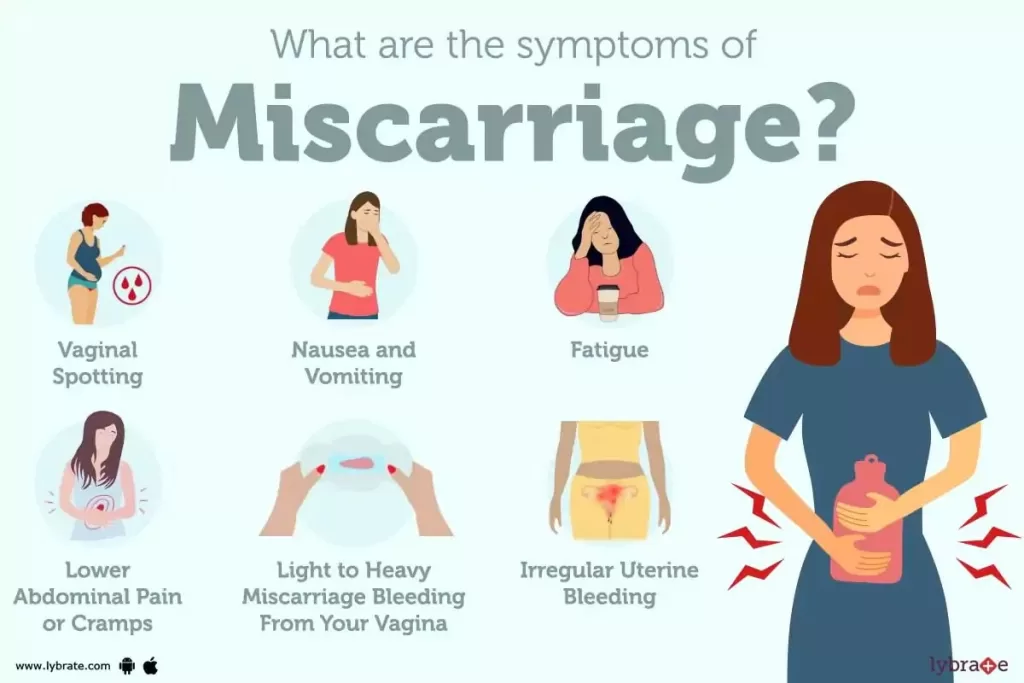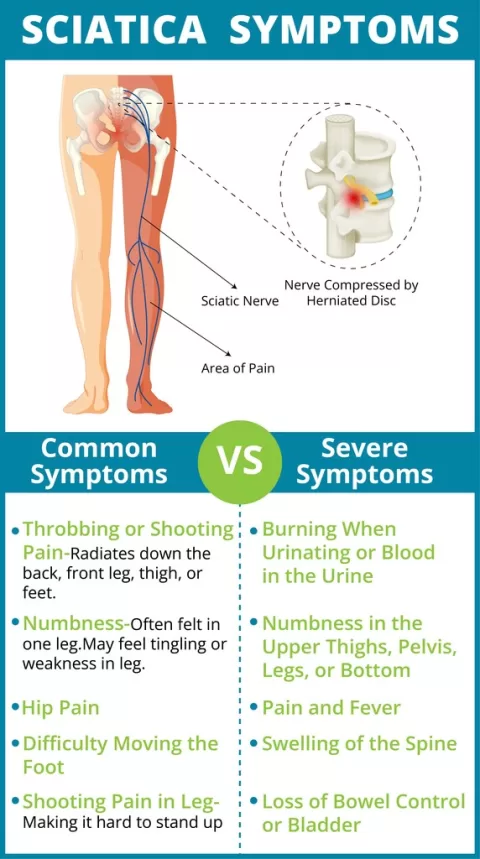Miscarriage symptoms can be difficult to identify, as they often vary from person to person and not all miscarriages present with clear warning signs. Common signs of miscarriage include uterine cramps, vaginal bleeding, and pain in the abdomen or lower back. Early miscarriage symptoms can often resemble normal pregnancy discomfort, making it challenging for expectant mothers to determine their condition. It is vital to recognize these miscarriage warning signs, especially in the first trimester when the risk is higher. If you experience these symptoms, knowing what to do if miscarrying is crucial—consulting a healthcare provider can provide guidance and support during this sensitive time.
Understanding the early indications of pregnancy loss is essential for anyone who is expecting. These signs of pregnancy complications can manifest in various forms, including cramping, bleeding, and abdominal discomfort, and may signal that a miscarriage is occurring. While some individuals may find it hard to differentiate between normal pregnancy symptoms and those associated with loss, it’s crucial to remain vigilant and aware. Terms like ‘spontaneous abortion’ and ‘pregnancy loss’ are often used interchangeably with miscarriage, emphasizing the emotional and physical impact this experience can have on individuals and families. By being informed about potential miscarriage diagnosis and available support systems, you can take proactive steps to care for your health and well-being.
Understanding Miscarriage Symptoms
Miscarriage symptoms can vary significantly among individuals, making it crucial for a pregnant person to be attentive to any changes in their body. Commonly reported signs include uterine cramps, vaginal bleeding, and abdominal pain. Uterine cramps often present as strong contractions in the lower abdomen, which can feel different from regular menstrual cramps; while some spotting may be normal in early pregnancy, heavy bleeding or severe cramping could indicate a miscarriage.
In addition to physical symptoms, many individuals report a sense of anxiety or emotional distress when they experience miscarriage symptoms. Understanding these symptoms can help individuals prepare for discussions with their healthcare providers, ensuring that they receive appropriate care if they suspect a miscarriage. Vigilance regarding symptoms is essential, as prompt medical attention can be crucial in managing health during such a sensitive time.
Common Warning Signs of Miscarriage
Recognizing the common warning signs of miscarriage is essential for anyone who is pregnant. Early signs often include noticeable vaginal bleeding or cramping, which tends to be more intense than typical menstrual discomfort. Additionally, some individuals may experience pelvic pain or lower back pain, which can add to the confusion, as these sensations are not uncommon in early pregnancy.
Aside from physically feeling unwell, pregnant individuals might observe decreased fetal movement if the miscarriage occurs later in the first trimester or during the second trimester. It is important to report any significant changes in these symptoms to a healthcare provider, as they can guide the next steps and provide reassurance, helping those affected by potential miscarriage navigate this challenging time.
What to Do If You Suspect Miscarriage Symptoms
If you begin to notice miscarriage symptoms, such as intense cramping or heavy vaginal bleeding, it’s crucial to contact a healthcare provider promptly. It’s better to err on the side of caution; even if the symptoms might not indicate a miscarriage, assessing the situation can provide peace of mind. Healthcare providers can conduct necessary evaluations like an ultrasound or blood tests to determine your hCG levels and investigate the cause of the symptoms.
In situations where a miscarriage is suspected, practitioners will likely ask specific questions about your symptoms and medical history to identify the next steps. This may include monitoring bleeding, assessing pain, or potentially referring you to an emergency medical facility if the situation demands it. Understanding what to do if you suspect miscarriage symptoms can help alleviate some of the anxiety often associated with the uncertainty of pregnancy complications.
Diagnosing a Miscarriage: What You Need to Know
Diagnosing a miscarriage typically requires the use of ultrasound technology and blood tests to monitor hormone levels, particularly hCG. A healthcare provider will assess the uterus’s contents through ultrasound to confirm if a miscarriage has occurred. Rapidly falling hCG levels can indicate that a miscarriage is underway or has already happened, so maintaining open communication with your healthcare provider during this time is crucial.
In cases of ambiguity, such as a missed miscarriage where fetal cardiac activity is absent, a follow-up ultrasound may be necessary to confirm the diagnosis. Understanding the pathways to diagnosis can alleviate some fears and equip individuals with the knowledge needed to navigate this difficult emotional terrain, facilitating informed discussions with healthcare providers.
Professional Guidance for Miscarriage Symptoms
When you experience symptoms that may indicate a miscarriage, it’s essential to reach out for professional guidance. Healthcare providers will typically perform a thorough evaluation to assess bleeding and pain levels, and they may ask a series of questions about your medical history and any prior pregnancy-related concerns. This evaluation helps to determine the best course of action based on your individual circumstances.
Don’t hesitate to contact your healthcare provider, even if you have questions outside of regular office hours, as timely intervention can make a significant difference. The medical professionals can provide reassurance and support, helping ensure you’re not navigating this alone. Understanding how to effectively communicate your symptoms and questions can empower you during this vulnerable time.
Signs of Miscarriage: When to Seek Help
It is vital to recognize the signs of miscarriage and when to seek help actively. While some spotting can occur in a normal pregnancy, signs such as heavy bleeding, severe cramping, or passing tissue warrant an urgent call to your healthcare provider. Being informed about what constitutes concerning symptoms can help you react quickly to safeguard your health and well-being.
Additionally, if you experience any sudden changes in pregnancy symptoms, such as a decrease in familiar signs like morning sickness or breast tenderness, it’s wise to discuss these changes with your doctor. While symptoms can fluctuate in early pregnancy, an observable decrease could be an essential cue to evaluate the situation further. Understanding the alarming signs of miscarriage can rearrange your priorities, emphasizing the need for immediate medical attention.
What Causes Miscarriage? Understanding the Risks
The causes of miscarriage are varied and often complex, with chromosomal abnormalities being the leading reason for early pregnancy loss. These abnormalities prevent the fetus from developing adequately. It’s also critical to understand that numerous factors can contribute to miscarriage risk, such as maternal age, underlying health conditions, lifestyle factors, and more. Recognizing these causes can be an important aspect of a comprehensive understanding of pregnancy health.
In some cases, the exact cause of a miscarriage may remain unknown, leaving many individuals feeling confused or frustrated. Discussing personal risks and family history with a healthcare provider can provide clarity and help develop a plan for subsequent pregnancies. Knowledge of miscarriage risks is crucial and can lead to informed discussions about future reproductive health.
Coping with Miscarriage Symptoms and Emotional Impact
Experiencing miscarriage symptoms can have a significant emotional impact beyond the physical symptoms themselves. Feelings of loss, grief, and confusion may surface, emphasizing the importance of seeking emotional support. Talking to friends, family, or mental health professionals can validate these feelings and help individuals navigate through the grieving process.
It’s essential to allow oneself the space to heal emotionally and physically after experiencing miscarriage symptoms or a loss. Joining support groups or discussing feelings with those who have experienced similar situations can provide a sense of community and understanding. Utilizing available resources can enhance coping strategies, affording individuals the opportunity to heal.
After a Miscarriage: Next Steps and Future Care
After experiencing miscarriage symptoms or a confirmed miscarriage, understanding the next steps is vital. Healthcare providers may discuss options for medical management, monitoring, or emotional support during this fragile time. Knowing what to expect allows individuals to prepare for physical recovery and any necessary follow-up care.
It’s equally important to consider future pregnancies after a loss. Specific assessments may be recommended to identify any underlying causes of miscarriage to better inform future reproductive health. Engaging in open dialogues with healthcare providers about family planning and genetic counseling can be empowering and provide reassurance for the journey ahead.
Frequently Asked Questions
What are the common signs of miscarriage during early pregnancy?
Common signs of miscarriage include uterine cramps, vaginal bleeding, pain in the abdomen or lower back, and decreased fetal movement. Uterine cramps often occur with spotting and are typically more intense than regular menstrual cramps, while vaginal bleeding can vary from light to heavy.
How can I identify early miscarriage symptoms?
Early miscarriage symptoms may include cramping and spotting, which are the most frequently observed signs. It’s essential to monitor the intensity and duration of these symptoms as they can signal a potential miscarriage.
What should I do if I’m experiencing miscarriage warning signs?
If you experience miscarriage warning signs, such as heavy bleeding or severe cramps, it’s crucial to contact your healthcare provider immediately. They can evaluate your condition and may suggest an ultrasound or blood tests to determine the status of your pregnancy.
How is miscarriage diagnosed based on symptoms?
A miscarriage diagnosis is primarily made through ultrasound examinations that check for the presence of a fetal heartbeat, coupled with blood tests that assess hCG levels. These methods help confirm whether a miscarriage has occurred.
What are the steps to take if I suspect I’m miscarrying?
If you suspect you are miscarrying, consult your healthcare provider without delay. They will guide you through the next steps, which may include scheduling tests or an urgent evaluation depending on the symptoms you are experiencing.
Can decreased fetal movement indicate miscarriage?
Yes, decreased fetal movement can be a sign of miscarriage during the second trimester. If you notice a significant reduction in fetal movements, it’s important to contact your healthcare provider for further assessment.
What are the differences between a missed miscarriage and other types?
A missed miscarriage occurs when fetal cardiac activity stops but there are no immediate miscarriage symptoms, whereas typical miscarriages present with symptoms like bleeding and cramping. Missed miscarriages are usually diagnosed during routine ultrasound examinations.
Is all vaginal bleeding during pregnancy a sign of miscarriage?
No, not all vaginal bleeding during pregnancy indicates a miscarriage. While it is a concerning symptom, many pregnancies can experience light bleeding without leading to miscarriage. It’s best to consult a healthcare provider to assess the situation.
What are some warning signs that require immediate medical attention during potential miscarriage?
If you experience heavy bleeding, severe abdominal pain, lightheadedness, or symptoms such as fever and foul-smelling discharge, you should seek immediate medical attention, as these could indicate a more serious condition related to miscarriage.
How should I cope if I suspect a miscarriage based on symptoms?
Coping with suspected miscarriage symptoms can be emotionally distressing. It is important to reach out to your healthcare provider for guidance and to talk with someone supportive, such as a partner or a counselor, to help process your feelings.
| Symptoms | Description |
|---|---|
| Uterine cramps | Intense cramping in the uterus, often accompanied by spotting, indicating a possible miscarriage. |
| Vaginal bleeding | Bleeding can vary from light spotting to heavy bleeding. Heavier bleeding often requires immediate medical attention. |
| Abdominal or back pain | Pain can range from dull and achy to severe cramping, which can be difficult to distinguish from normal pregnancy discomfort. |
| Decreased fetal movement | Especially relevant for losses in the second trimester, a noticeable decrease in movement can indicate a miscarriage. |
| Missed miscarriage | A condition where the fetal heartbeat has stopped but symptoms of miscarriage have not yet occurred. Diagnosed via ultrasound. |
Summary
Miscarriage symptoms can be a powerful indicator of a potential loss in pregnancy. Common symptoms include uterine cramps, vaginal bleeding, abdominal pain, and decreased fetal movement. If you experience any of these miscarriage symptoms, it is crucial to contact your healthcare provider for further assessment and guidance. While some symptoms can be alarming, it is important to remember that not all bleeding or cramping indicates a miscarriage. Early and responsive care can help ensure your health and well-being.
The content provided on this blog (e.g., symptom descriptions, health tips, or general advice) is for informational purposes only and is not a substitute for professional medical advice, diagnosis, or treatment. Always seek the guidance of your physician or other qualified healthcare provider with any questions you may have regarding a medical condition. Never disregard professional medical advice or delay seeking it because of something you have read on this website. If you believe you may have a medical emergency, call your doctor or emergency services immediately. Reliance on any information provided by this blog is solely at your own risk.







